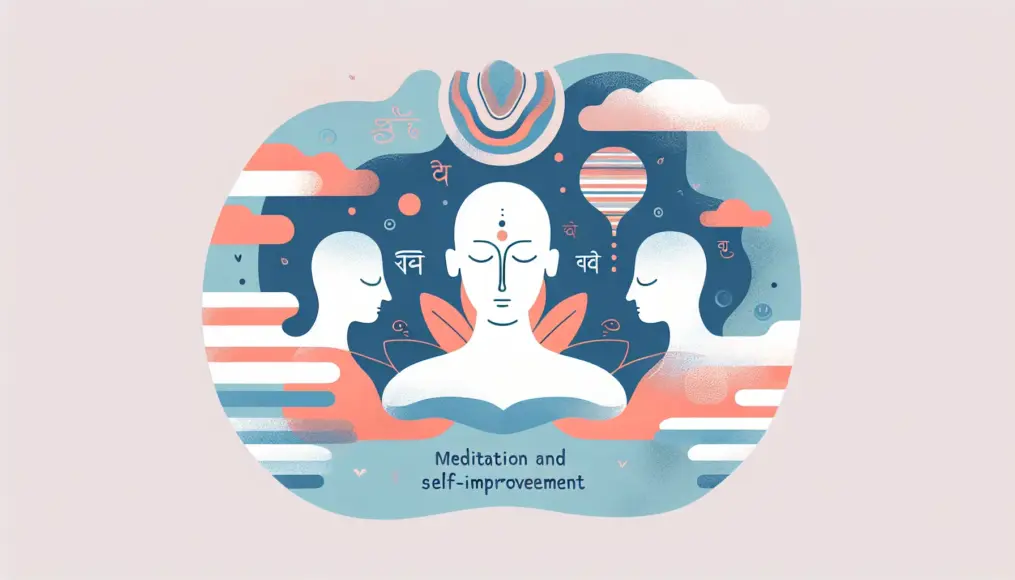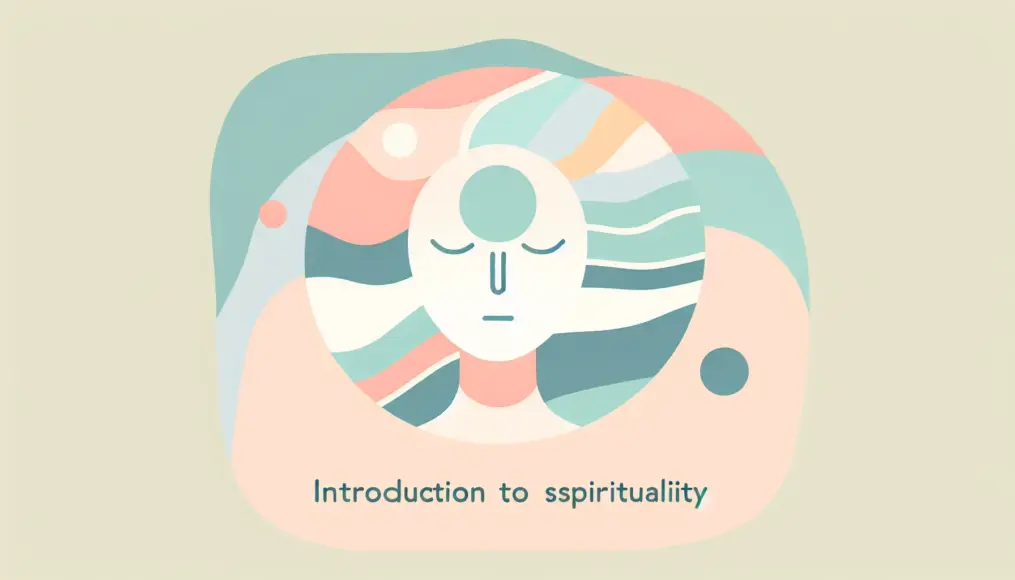Eating and meditation are two crucial elements that significantly impact our minds and bodies. In the hustle and bustle of daily life, many of us may view meals merely as a way to fuel our bodies. However, eating actually plays a profound role in shaping our emotions and consciousness. Meanwhile, meditation serves as an excellent tool for centering our minds and fostering inner peace. By combining these practices, we can maintain a healthier balance between our minds and bodies.
In this article, we will explore how we can harmonize our mind and body through eating and meditation. We’ll delve into the effects of food on our mental state, provide insights into the foundational concepts of meditation, and share various approaches to mindful eating. So, why not join us in discovering how to achieve a better balance for your mind and body?
- Exploring the impact of food on the mind and its connection to meditation
- Introducing mindfulness practices to enhance your enjoyment of eating
- Suggestions for maintaining mental balance through meditation
The Importance of Eating and Its Connection to Meditation
In our daily lives, both eating and meditation are essential components for maintaining mental and physical health. Eating isn’t just about nutrition; it also significantly impacts our emotions and mood. Conversely, meditation is widely recognized as a means to calm the mind and achieve inner stability. In this section, we will delve deeper into how our diet affects our mental state and explore the basic principles of meditation. Let’s discover how we can enrich our minds and bodies through the practices of eating and meditation.
How Eating Affects Our Minds
What we eat profoundly influences not only our bodies but our minds as well. The nutrients we obtain from our meals directly affect brain function, making nutrition a key element for maintaining mental wellness. For instance, fish rich in omega-3 fatty acids and colorful vegetables packed with B vitamins are known to contribute to stress reduction and mood stabilization.
Additionally, the way we eat and the environment in which we dine can also impact our mental state. Eating in a hurry or while distracted by television can prevent us from truly enjoying our meals, leading to feelings of unrest. In such moments, focusing our attention on the act of eating itself can often enhance our mental clarity and well-being.
- Explains how diet impacts mental health
- Introduces the effects of nutrition on the brain
- Explores why our eating habits influence our minds
What is Meditation?
Meditation is one method for quieting the mind and finding inner peace. Starting with simple breathing techniques, it gradually heightens awareness, potentially reducing stress and anxiety. For centuries, many cultures have practiced meditation as a way to clear mental clutter and encourage deeper self-understanding.
Incorporating meditation into your routine allows you to become more aware of your emotions and thoughts, serving as a crucial first step toward a healthier lifestyle. For example, practicing a brief meditation before and after meals can help calm your mind, enhancing the quality of your dining experience. In this way, eating and meditation complement each other beautifully.

If you found this article interesting, you might also enjoy our piece on “How to Practice Transcendental Meditation: A Step-by-Step Guide to Finding Your Inner Peace.” This guide provides detailed insights into the fundamentals and practice of transcendental meditation, offering practical steps for seeking mental tranquility. You’ll gain valuable information to deepen your understanding of the relationship between eating and meditation.
- Explains the basic principles of meditation
- Introduces the effects of meditation on the mind
- Gains new perspectives by exploring the relationship between meditation and eating
Mindfulness and Eating
Have you ever considered how essential it is to be mindful while eating in our daily lives? Eating is not just about satisfying hunger; it’s also an opportunity to center ourselves and relax. In this section, we’ll explore ways to enhance your awareness during meals and provide tips for truly enjoying the act of eating. By incorporating mindfulness into your dining experience, you can transform your meals into a richer experience.
Ways to Enhance Awareness During Meals
To practice mindfulness, the first step is to heighten your awareness while eating. For instance, try taking a few deep breaths before you start your meal to calm your mind. This simple act can increase your anticipation of the meal and allow you to enjoy it more fully. As you eat, focus on the colors, aromas, and textures of your food. Engaging all five senses will deepen your appreciation of each bite.
Additionally, it’s important to set aside distractions like smartphones and TVs while you eat. By minimizing external noise, you’ll enhance your ability to savor the flavors of your food. This way, your meals can transform from a mere routine into a special time that nourishes both the body and soul.
- Calm your mind with deep breaths before eating
- Explore how to enjoy food by focusing on its colors, aromas, and textures
- Understand the importance of minimizing distractions for a more focused dining experience
Finding Joy in Eating
Eating is not just about replenishing nutrients; it’s also a crucial time for fostering emotional richness. To truly enjoy your meals, start by selecting foods and dishes that you love. Eating delicious food that aligns with your preferences not only satisfies your hunger but also brings joy to your spirit.
Moreover, the company you share your meals with plays a vital role in the experience. Dining with family and friends makes the meal more enjoyable. Sharing delightful conversations and laughter deepens your connections, turning the act of eating into a cherished moment.
- Understand why choosing your favorite ingredients and dishes can enhance enjoyment
- Emphasize the importance of communication with those you dine with
- Share tips and ideas for making meals feel special
The Practice of Meditation and Its Benefits
Eating and meditation are essential components that support both mental and physical well-being. In this section, we’ll delve into how to practice meditation and the benefits it can bring. We’ll particularly explore easy meditation techniques that you can incorporate before and after meals, enhancing your overall dining experience. By making meditation a part of your daily routine, you can promote mental stability and relaxation, ultimately enriching your enjoyment of food.
Simple Meditation Techniques
Getting started with meditation is surprisingly easy. Begin by finding a quiet spot to sit comfortably, closing your eyes, and taking a deep breath. As you inhale, visualize fresh energy entering your body, and as you exhale, imagine releasing any tension or stress from your mind. Just repeating this simple process for a few minutes can help you feel your mind settling down.
During meditation, thoughts may arise, but it’s essential not to dwell on them. Instead, gently bring your focus back to “the here and now.” Take your time and go at your own pace; over time, you’ll begin to notice the benefits of meditation. Particularly before meals, this practice can prepare your mind, allowing you to enjoy your food even more.
- Introducing basic deep breathing techniques for meditation
- Emphasizing the importance of focusing on “the present” without getting caught up in thoughts
- Highlighting the benefits of meditating before meals to center your mind
The Benefits of Meditating Before and After Meals
Incorporating meditation before and after meals can help maintain your mental balance. Meditating before you eat can relax your mind and prepare you to savor your meal. By clearing your mind and appreciating the colors and aromas of your food, you can deepen your tasting experience.
Post-meal meditation is also highly beneficial. Take a moment after eating to engage in some deep breathing again. As you do this, enjoy the sensation of the energy from your meal settling in your body. This practice aids digestion and enhances your sense of mental satisfaction.
- Exploring the relaxation benefits of meditating before meals
- Explaining how to harmonize your energy post-meal through meditation
- Suggesting specific methods to enhance your sense of fulfillment through meditation
Applying Mindfulness to Daily Life
Eating and meditation both play crucial roles in our everyday lives. In this section, we’ll explore how combining these two practices can help us maintain mental balance and enrich our daily experiences. Rather than viewing meals merely as a source of nutrition, we can transform them into valuable moments for centering our minds, leading to a more fulfilling daily life. So, let’s dive into this practice together!
Merging Eating and Meditation
By combining eating with meditation, you can gain a fresh perspective on your daily routine. For instance, try incorporating a few minutes of meditation before your meals. Sit quietly, take deep breaths, and pay attention to the colors and aromas of your food. This process enhances your awareness of eating, transforming it into a more meaningful experience.
Additionally, consider integrating short moments of meditation into your daily activities. Whether it’s savoring the beauty of nature during a walk or taking a deep breath between bites, these simple practices can calm your mind and refresh your spirit. By weaving elements of meditation into eating and everyday moments, you can achieve harmony between your mind and body.
- Methods for incorporating a few minutes of meditation before meals
- Practical ideas for integrating meditation into daily life
- How to turn eating into a more meaningful experience
Tips for Maintaining Mental Balance
To maintain mental balance, it’s essential to consciously include eating and meditation in your life. When you feel stressed or unsettled, prioritize taking the time to enjoy your meals. Relishing delicious food can often help calm your mind.
Furthermore, by incorporating meditation into your daily routine, you can achieve greater mental stability. Setting aside a few minutes each day for meditation can clear your mind and help you maintain a positive energy flow. Through these practices, you can nurture yourself and sustain your mental balance.
- Suggestions for savoring meals when feeling stressed
- Specific ways to incorporate meditation into your daily routine
- The importance of self-care in maintaining mental balance
Conclusion
Eating and meditation are vital elements that profoundly impact our minds and bodies. Instead of viewing meals solely as a source of nutrition, we can transform them into valuable moments for mental clarity, leading to richer experiences in our daily lives. Incorporating meditation can also help maintain mental balance and reduce stress. By combining these practices, you can enhance your overall well-being and enjoy more fulfilling days.
Through this article, I hope you’ve gained insights into the relationship between eating and meditation, along with practical tips for integrating them into your life. I encourage you to start incorporating these practices little by little, as this enriching journey can lead to new discoveries and joys.
- Understand that mealtime is an essential opportunity for mental clarity
- Recognize the importance of incorporating meditation into daily life for maintaining mental balance
- Experience richer moments by combining eating and meditation
So, why not begin this practice today and reclaim your mental and physical health? If you have any thoughts or questions, feel free to share them in the comments!


Comment